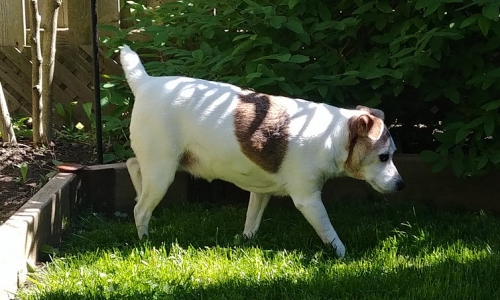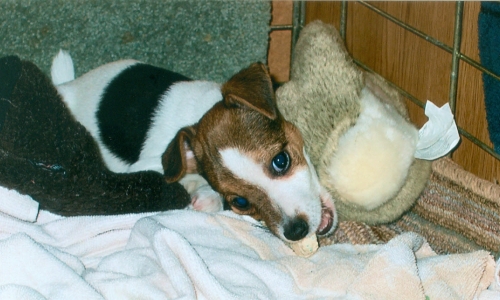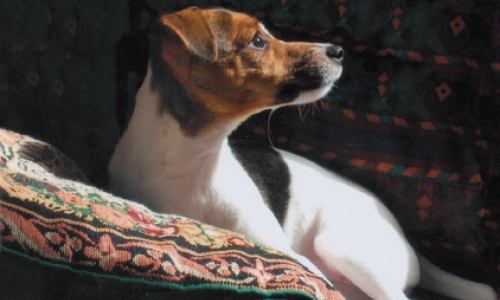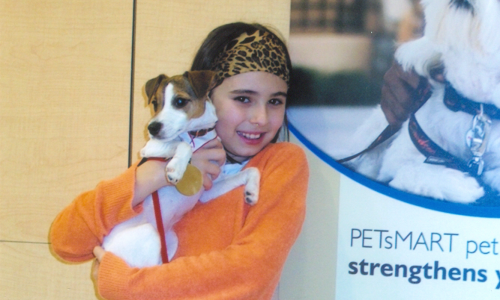Canine dementia is more common than you think
The Seasons of a dog's life

Sadie, a grand lady at 12, almost 13 years of age
It started in early spring with SKY, a strange evening restlessness, a compulsion to ball up her blankets and dig, dig, dig. She no longer wanted to stay with us at night and began to seek out darker, more isolated places to sleep. Sometimes she would go out in the backyard and refuse to come in.
In the morning, she's fine, happy to greet us with her tennis ball, enticing us to play. Physically she’s enjoyed better-than-average health for a dog soon to be celebrating her thirteenth birthday. Her catlike tendencies are still sharp, running along the back of the couch, crawling under furniture after toys, dashing up and down the stairs with little effort. This repetitive nighttime behaviour is new.
As a trainer, owners have sometimes come to me with stories about their senior companions, so I had my suspicions as to what was happening with my own dog. The vet called it Canine Cognitive Dysfunction (CCD) but it’s also known as canine senility or canine dementia and it often goes unrecognized. Dogs are living longer these days so it’s not surprising they're also experiencing the same cognitive decline as we do, with age. Milder symptoms are circling or repetitive behaviour, wandering, house soiling, sleep disorders, decreased learning and increased levels of barking or whining.
More advanced symptoms could be pacing back and forth or in circles, losing the ability to recognize familiar places, staring into space, seeking out tight spaces, failing to remember known routines, etc. As with humans, canine dementia can be attributed to a build-up of beta-amyloid plaques around neurons which affect the transmission of nerve impulses in the brain. And, as with us, there is no cure but there are things we can do to delay more pronounced symptoms…
Management
- More daytime activity to provide fresh experience and mental exertion
- Increased social interaction to increase motivation
- More exposure to sunlight to regulate a dog’s sleep-wake cycle
- More toileting opportunities, on a regular basis, since older dogs simply can’t wait as long as they once could
- A change to prescription senior food that includes antioxidants for cellular-level health and medium-chain triglycerides
- An addition of supplements to their diet, that contains amino acids which can reduce CCD related anxiety
How time flies...

Sky at two months, October 2006, when we were new and just beginning

Sky at seven months enjoying her sunny spot on the couch

Sky and my daughter Emma, puppy class graduation day, summer of 2007. Emma's a young woman now, just finishing university and with a new dog of her own
There are also some medications available, however, these can be hard on a senior dog’s liver and kidneys. For mild symptoms, my vet recommended Gravol to help Sky sleep, to be taken as needed. You should confirm the dosage with your own vet, depending on your dog’s weight. For now, I found this was a very effective and minimally invasive solution. In addition, I've kicked her training routines up a notch.
In closing, as the Welsh poet, Dylan Thomas once wrote "Do not go gentle into that good night..." Find ways to get your dog excited about life again. Improvements and substantial delays can be made to this unavoidable decline, just as new experiences and new routines can make a difference with us.
THE DOG BLOG is a great resource for tips on training and canine well-being. Got questions or a topic in mind? Let me know via the comments box. I would love to hear from you.
Comments
New comment